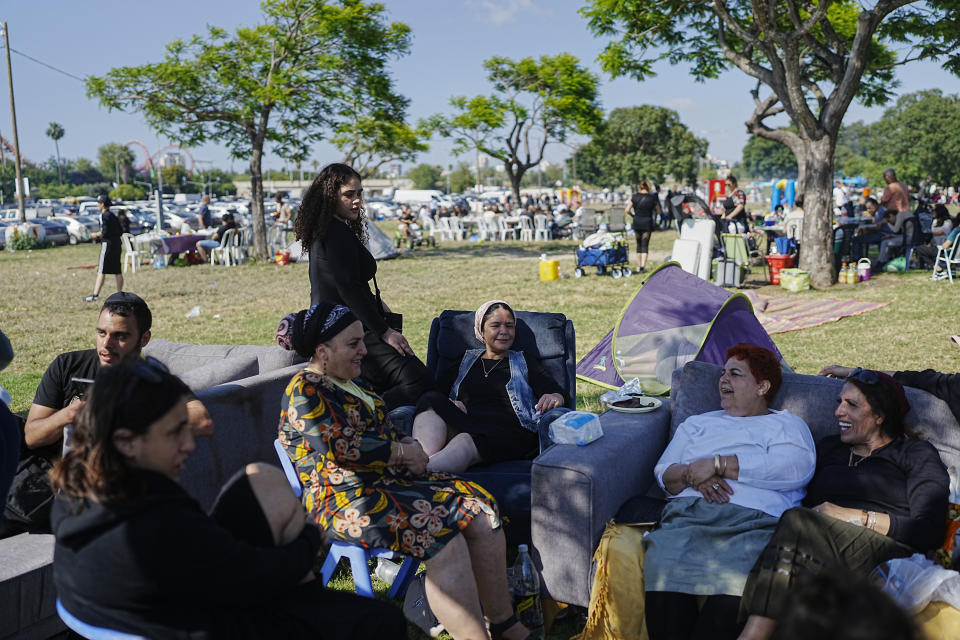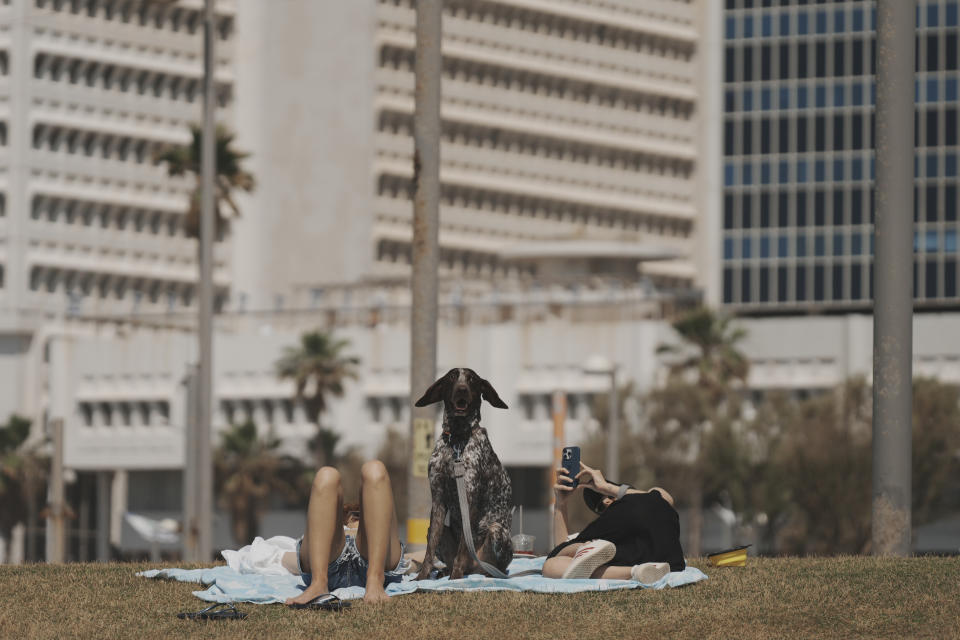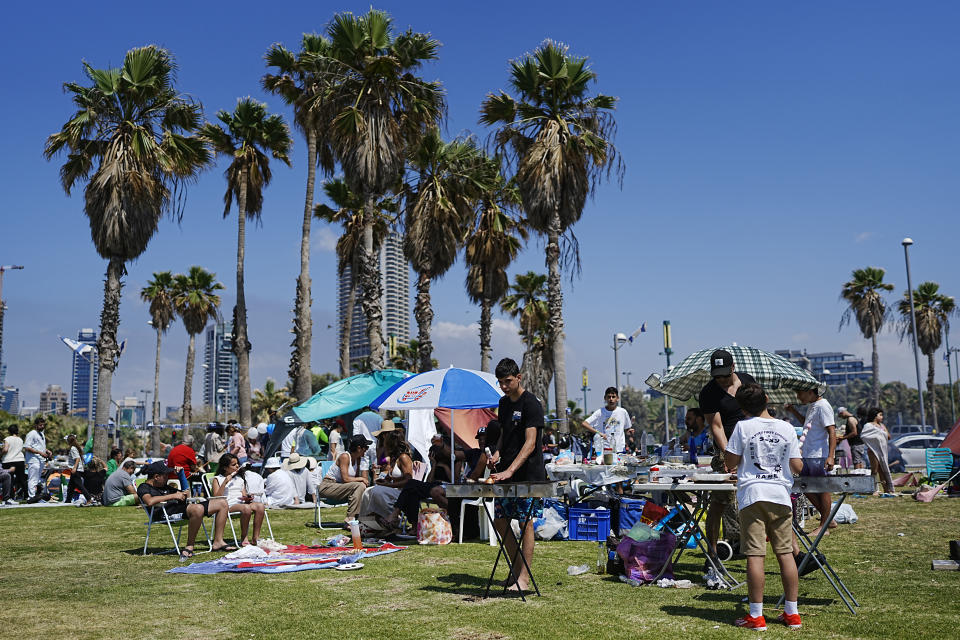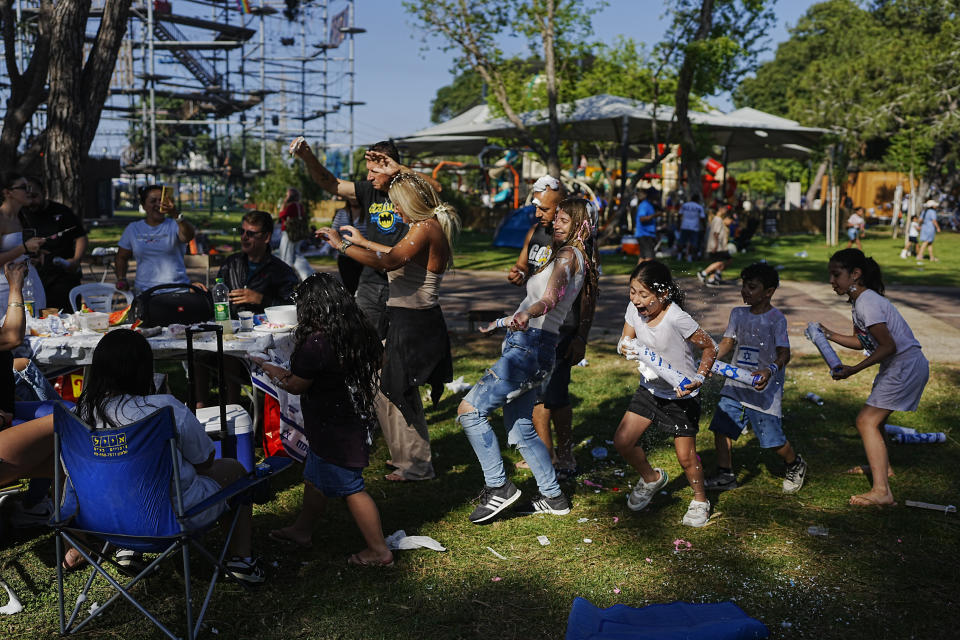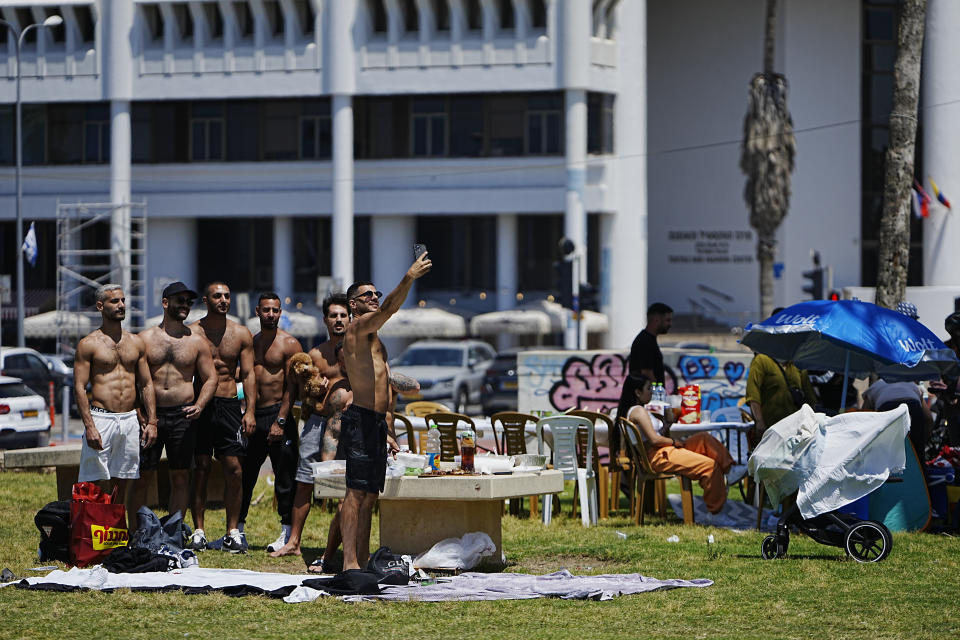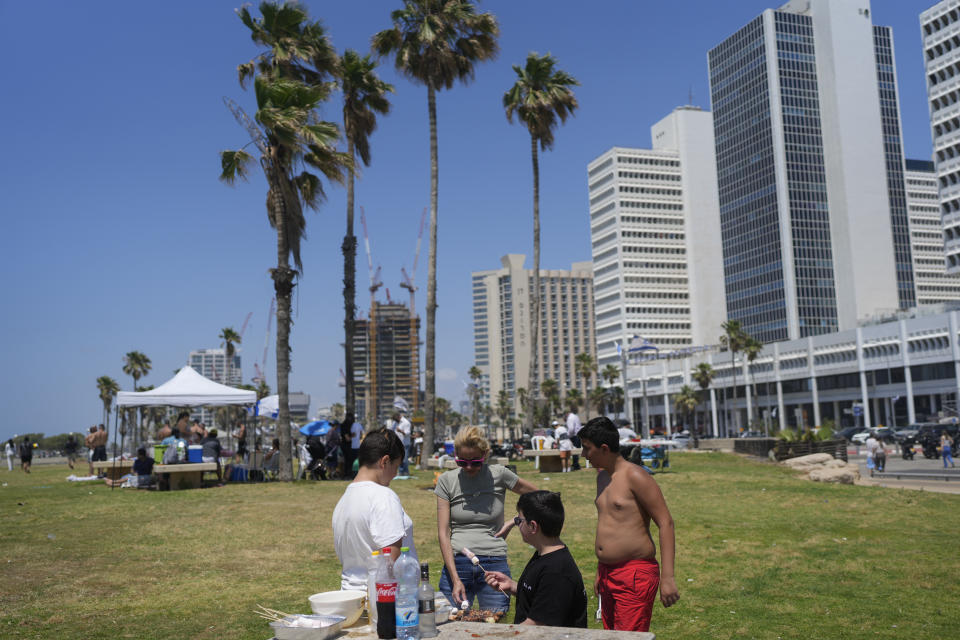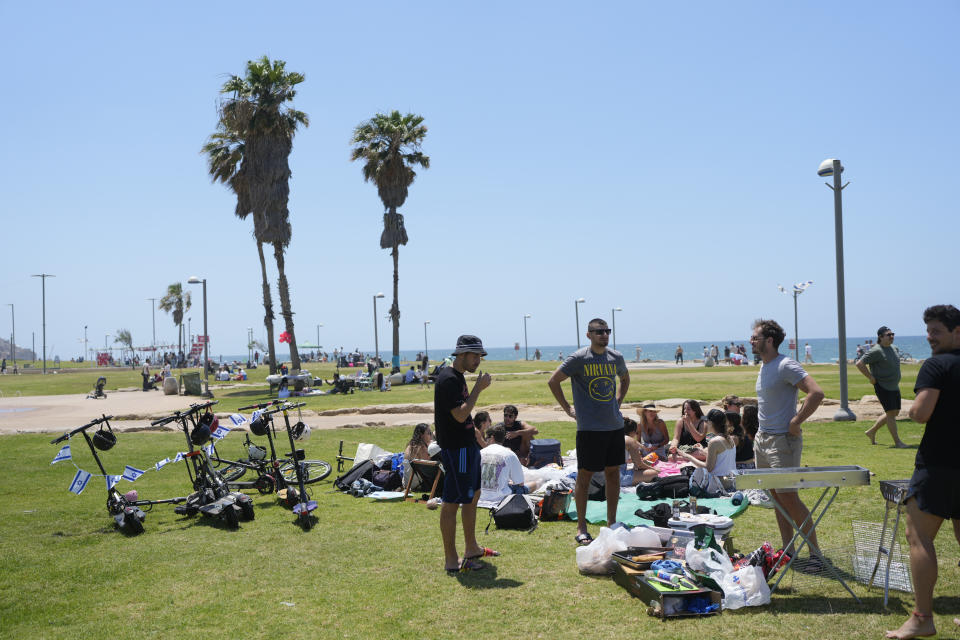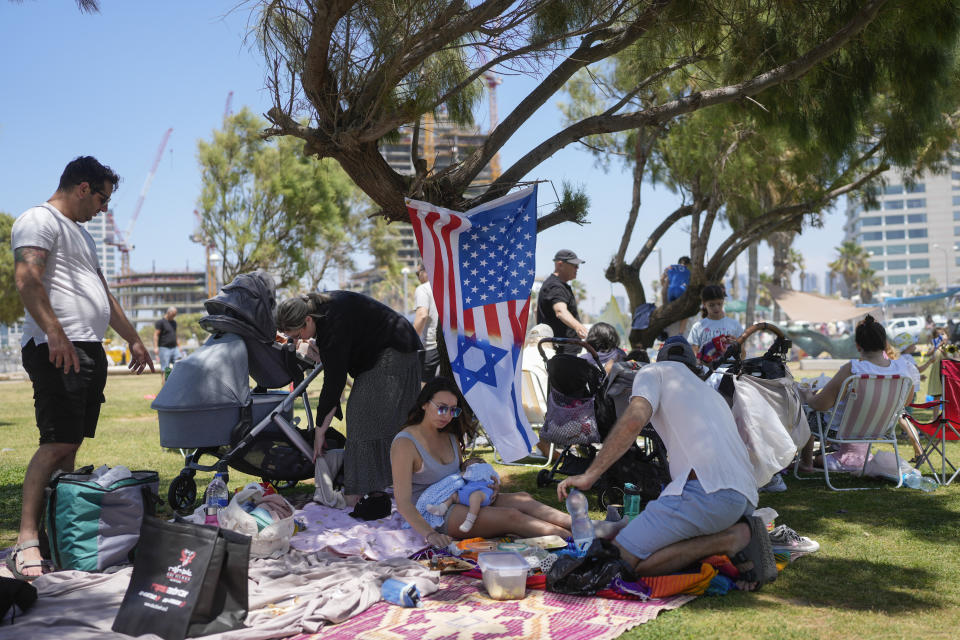Israelis mark a subdued Independence Day under the shadow of war in Gaza
TEL AVIV, Israel (AP) — The grills were fired up, the blankets were spread across the grass, the smoke was pungent from sizzling slabs of meat. As in previous years, Israelis marked Independence Day with barbecues in parks across the country. Usually, parties crush so close that not even a tuft of grass is visible between the picnic blankets as Hebrew techno music reverberates through the trees from dueling speakers.
But this year, the day parties Tuesday were smaller and quieter, with far fewer celebrants, in the shadow of the war in Gaza and immediately after the country marked an emotional Memorial Day. Families grappled with their desire to mark Independence Day even as the country is facing a drawn-out war and one of its most difficult tests in decades.
“It’s important to us to show Hamas that we are strong and our country is important to us, and we still go out and we still live our lives,” said Shiri Simon, a computer programmer from the ultra-Orthodox city of Bnei Barak. But the thought of the more than 100 hostages being held in Gaza, along with the remains of 30 others, and the soldiers killed and injured in the ongoing fighting was never far from her mind. “The two things can coexist, it doesn’t necessarily contradict,” she said.
Some 1,200 people were killed in Israel during Hamas’ cross-border raid on Oct. 7, when thousands of militants rampaged across southern Israeli military bases and small communities next to the Gaza border. The attack sparked the war, now in its eighth month, which has killed more than 35,000 Palestinians, most of them women and children, according to local health officials.
Simon said it was important for her to maintain Independence Day traditions for her children, to make the sausages they love on the grill and spend the day together as a family. The differences this year were apparent, she said, from the lack of fireworks to the fairly empty park.
“Nothing really feels independent here during this time. I spent four and a half months fighting in Gaza, our hostages aren’t home, people are still torn from their homes, they killed so many people, civilians and soldiers,” said Tom Sharlo, 29, a reservist in a combat tank unit in the Israeli army, as he flipped steaks for his family. “What we’re doing is putting on a mask and saying ‘everything’s OK,’ but in reality, nothing’s OK,” he said.
Independence Day in Israel, which this year began Monday evening and runs until Tuesday evening, comes a day after it marks its Memorial Day for fallen soldiers and victims of terrorism. Memorial Day is one of the most somber days on the calendar, as bereaved families visit cemeteries and the country comes to a standstill to remember the dead. The melancholic mood traditionally ends abruptly in the evening with a burst of jubilant Independence Day celebrations, which usually include fireworks.
This year, fireworks were canceled across the country, as many cities scaled down their street parties. The traditional air force fly-by was also called off.
The national torch lighting ceremony, normally broadcast live from Jerusalem, was prerecorded with segments from some of the towns hardest hit in Hamas’s Oct. 7 attack that sparked the ongoing war.
The sequence of Independence Day directly after Memorial Day is intended to highlight the link between the costly wars Israel has fought and the establishment and survival of the state. But that contrast is especially hard to reconcile when Israel is actively engaged in warfare and Israelis feel more insecure than ever.
On Tuesday, despite the challenges, some families decided to turn up their festivities. Inga Israeli’s family dragged out a drink fridge and five separate grills for their party in a Tel Aviv park, saying that it would be “a prize for Hamas” if they didn’t celebrate Independence Day.
Others were less certain. “There’s no feeling of joy in the holiday that we usually have. I’m always thinking of the hostages and those that died at the party,” said Ruth Amzaleg, referring to the Nova music festival, where 364 people were killed. “I don’t know how their families can even breathe,” she said. Two hostages still held in Gaza are Amzaleg’s neighbors, from towns north of Tel Aviv, and another neighbor lost her soldier son, so Memorial Day was exceptionally difficult this year, she said.
Avivit Amzaleg, her daughter, wasn’t sure up until the last moment that she would come to the annual family picnic in Tel Aviv. But in the end, the family decided that being together was the most important thing.
“We understand that life is stronger than death, and we need to live next to the pain,” said Avivit Amzaleg.

